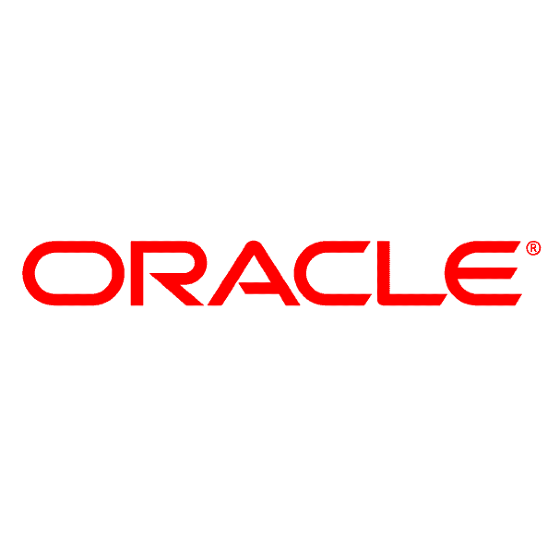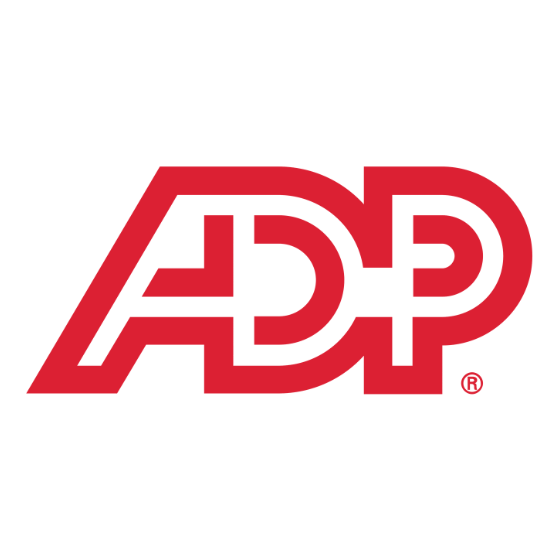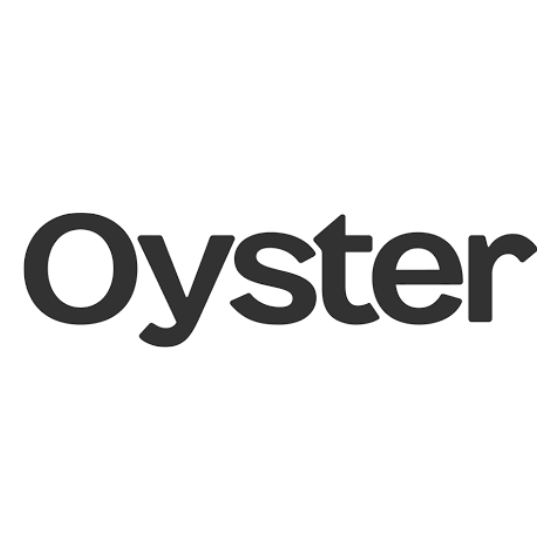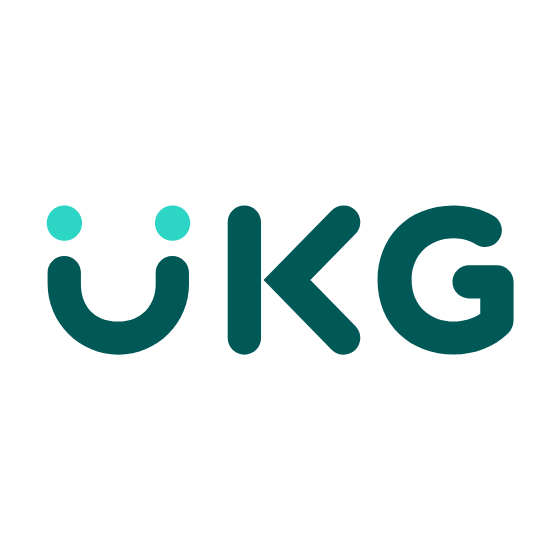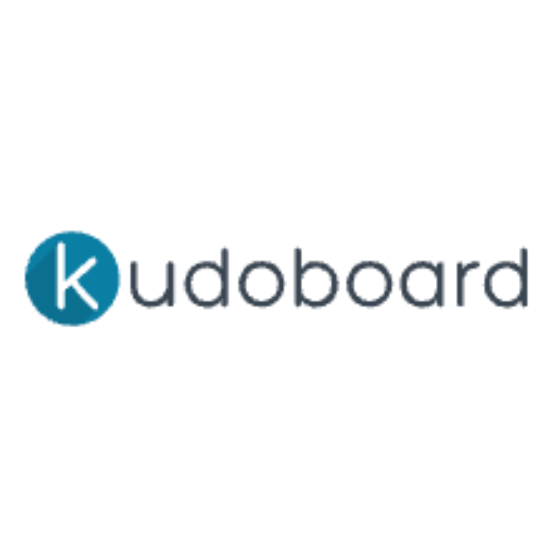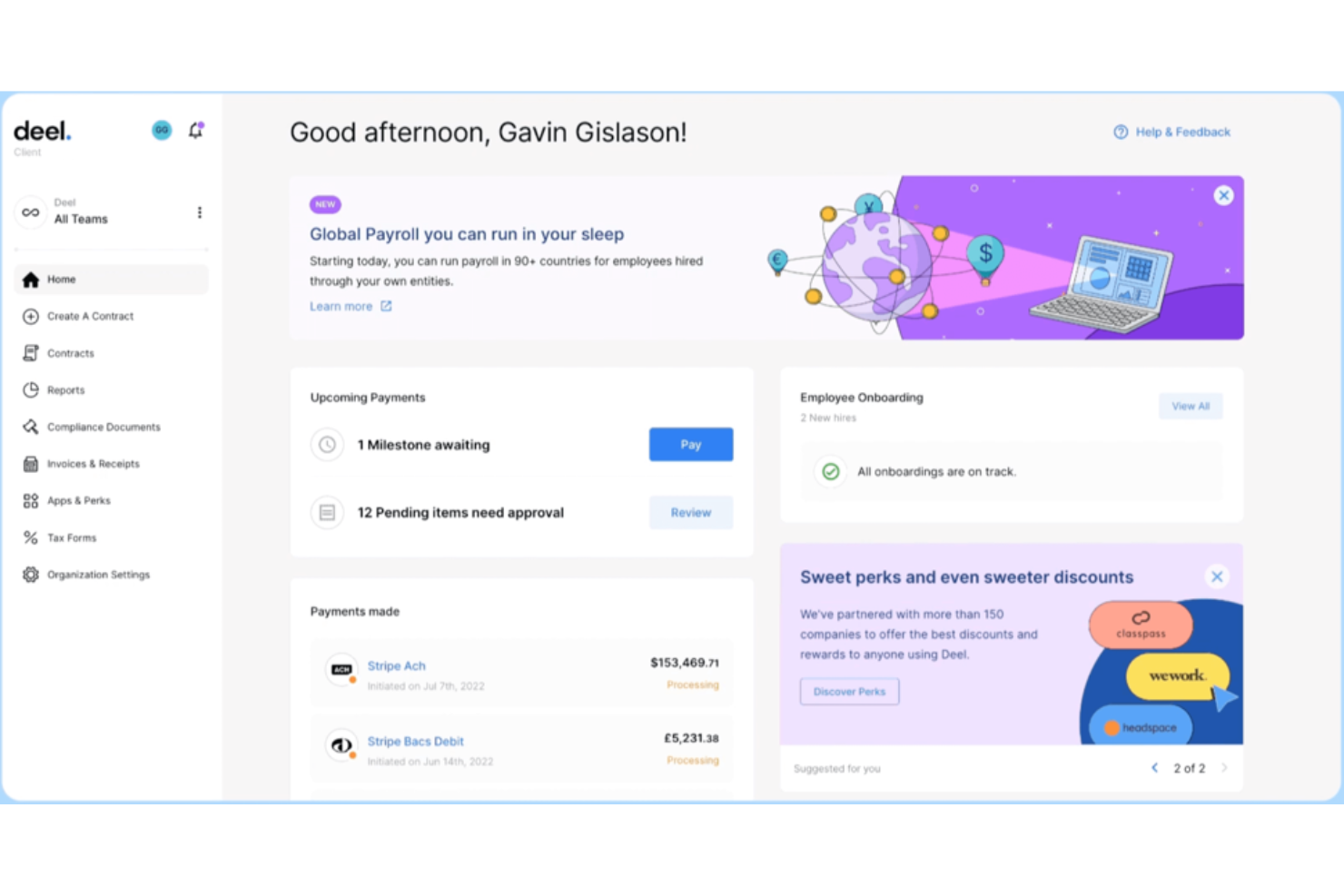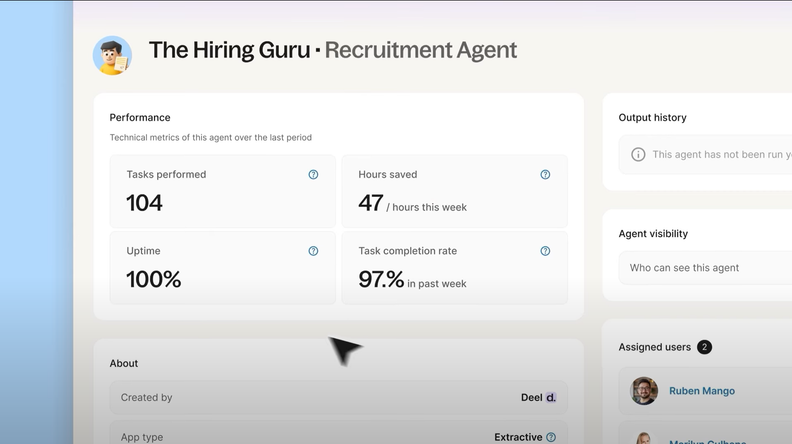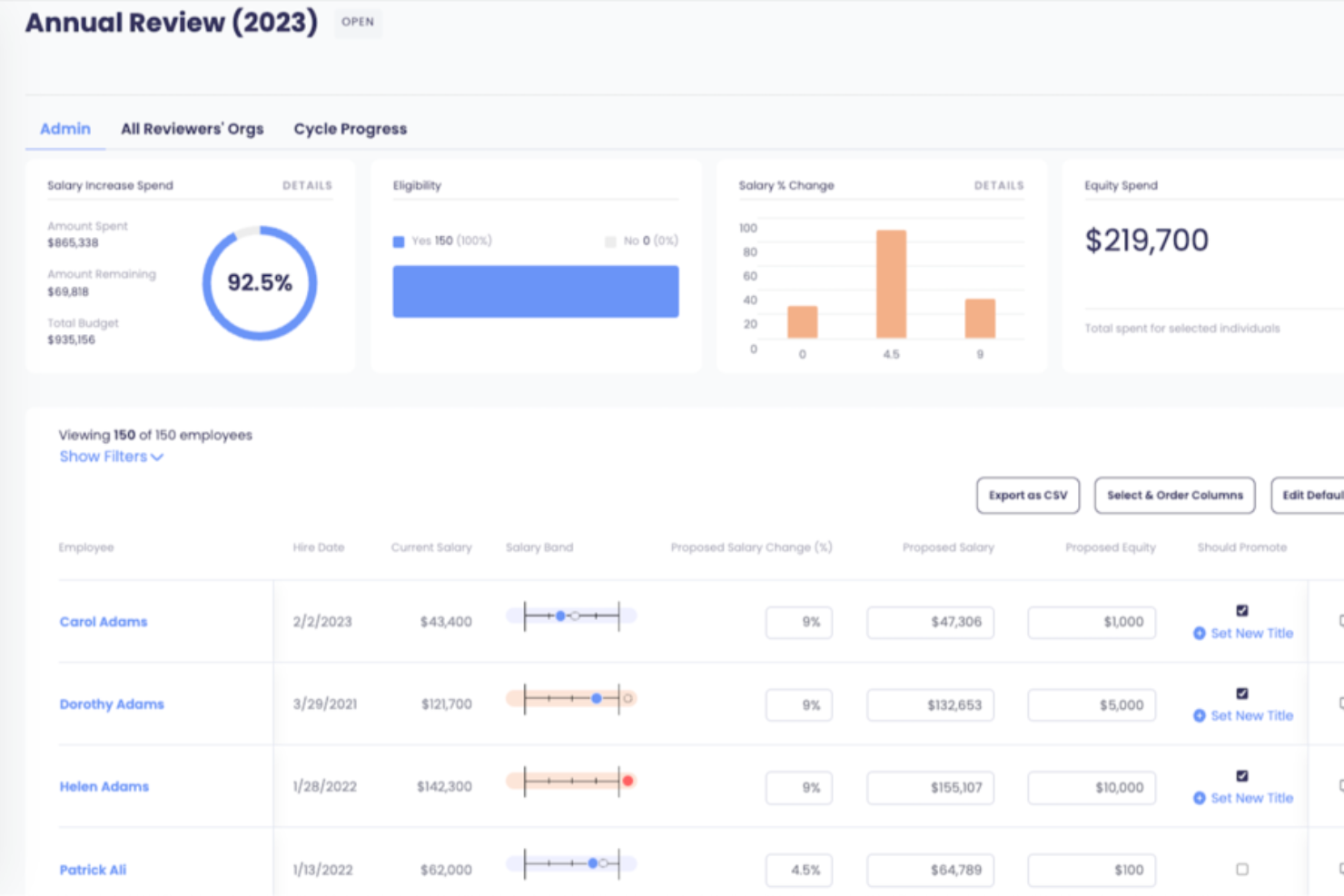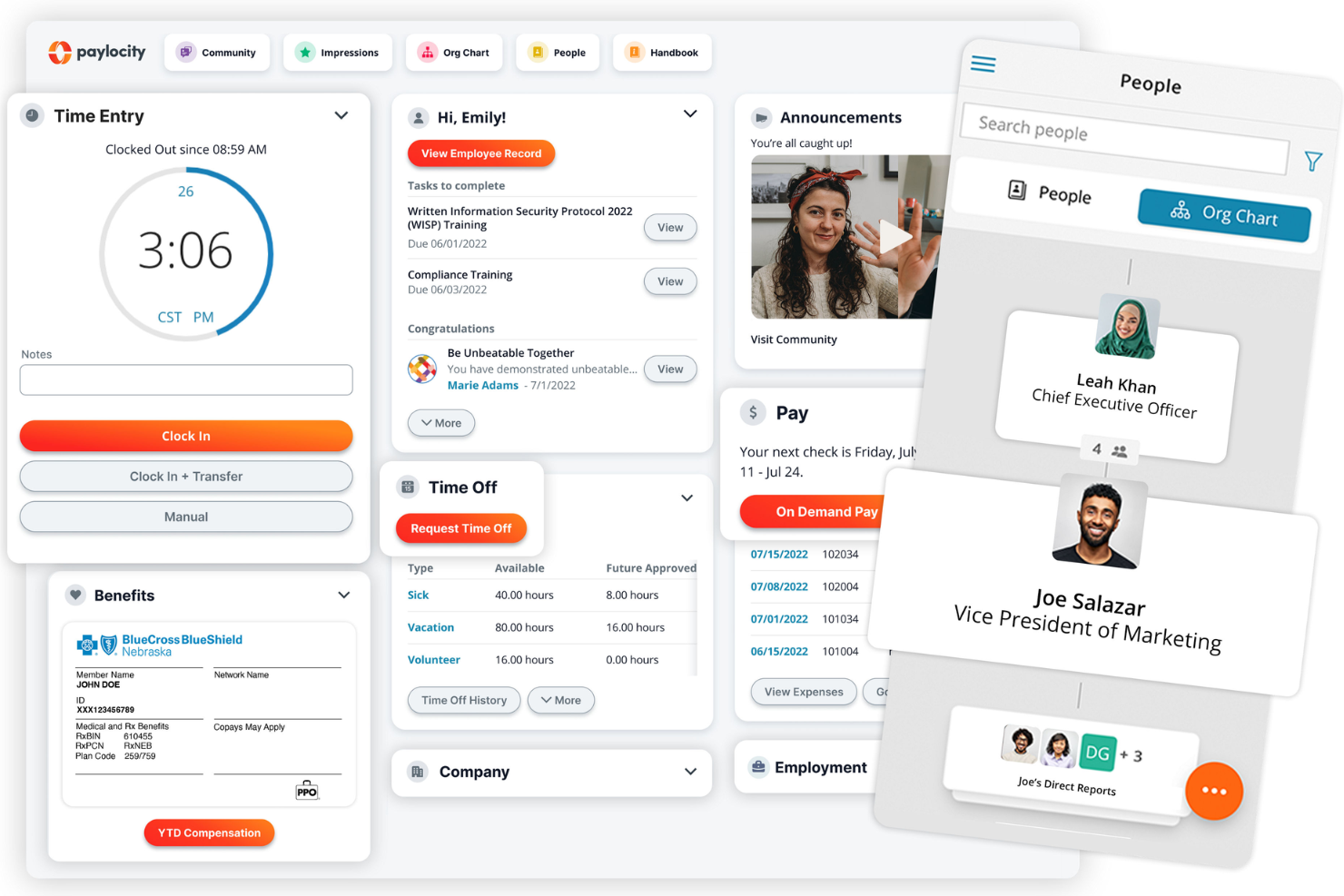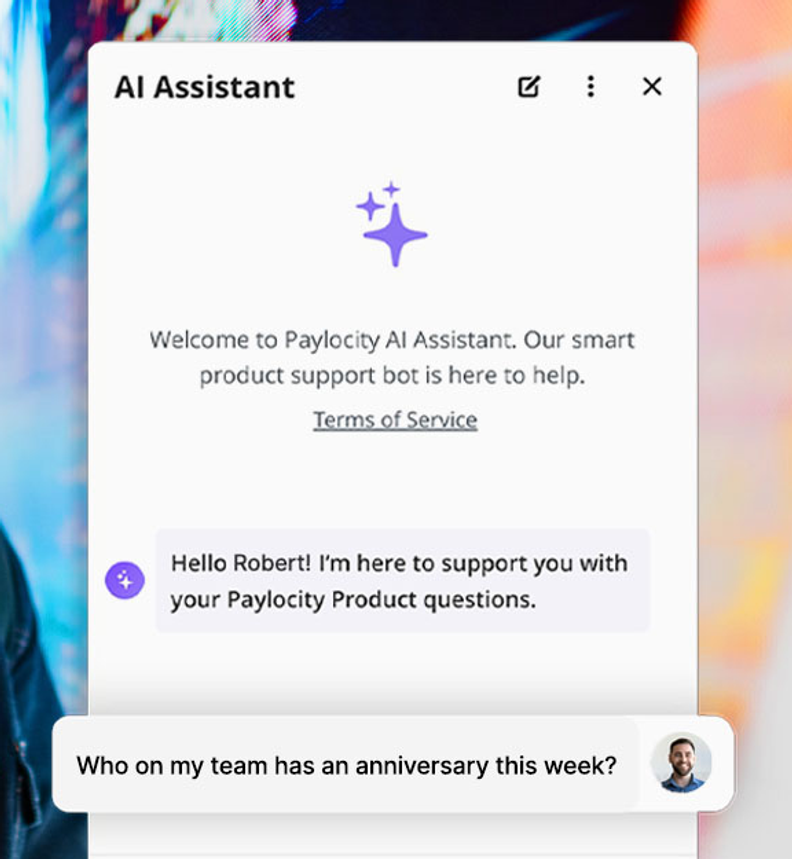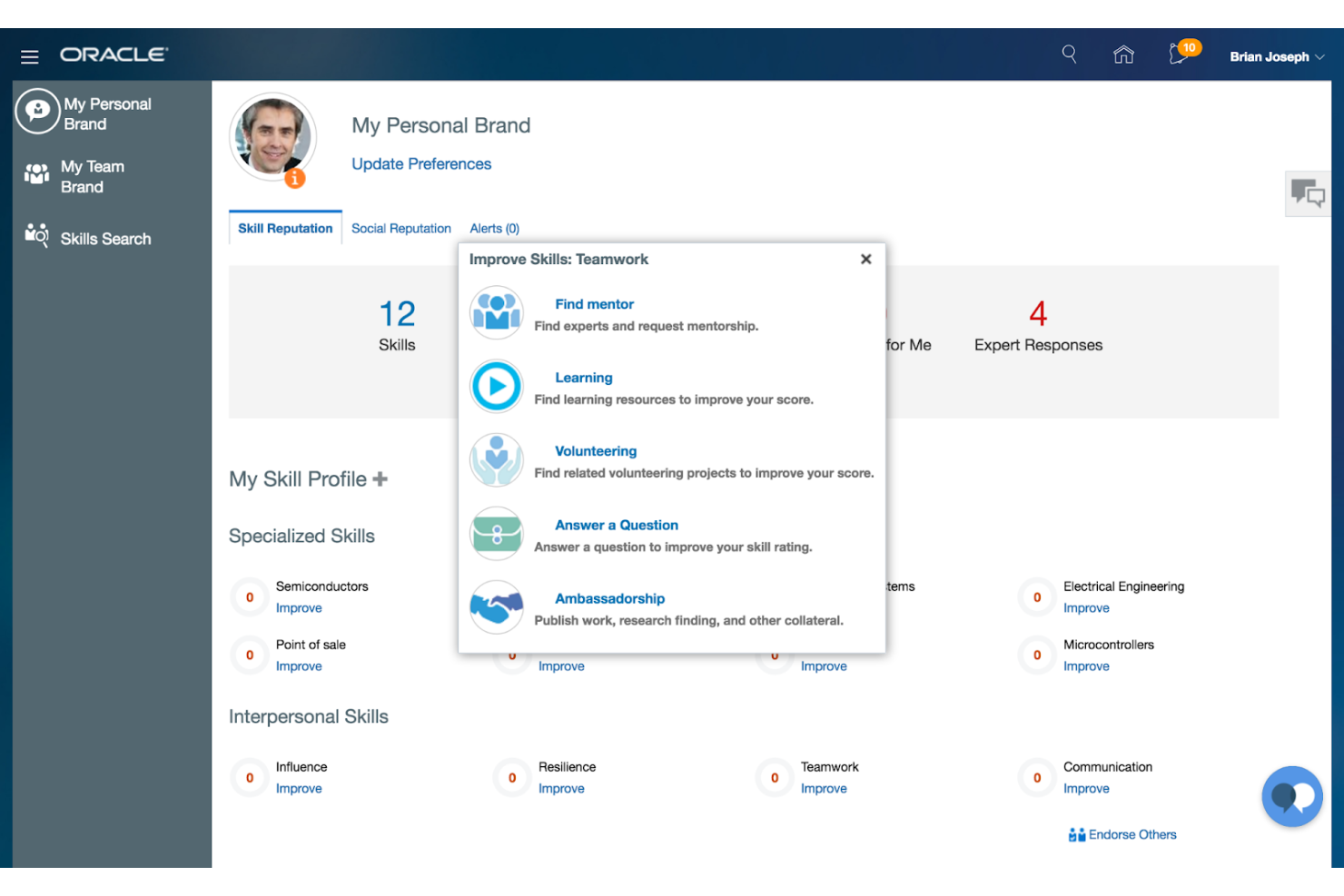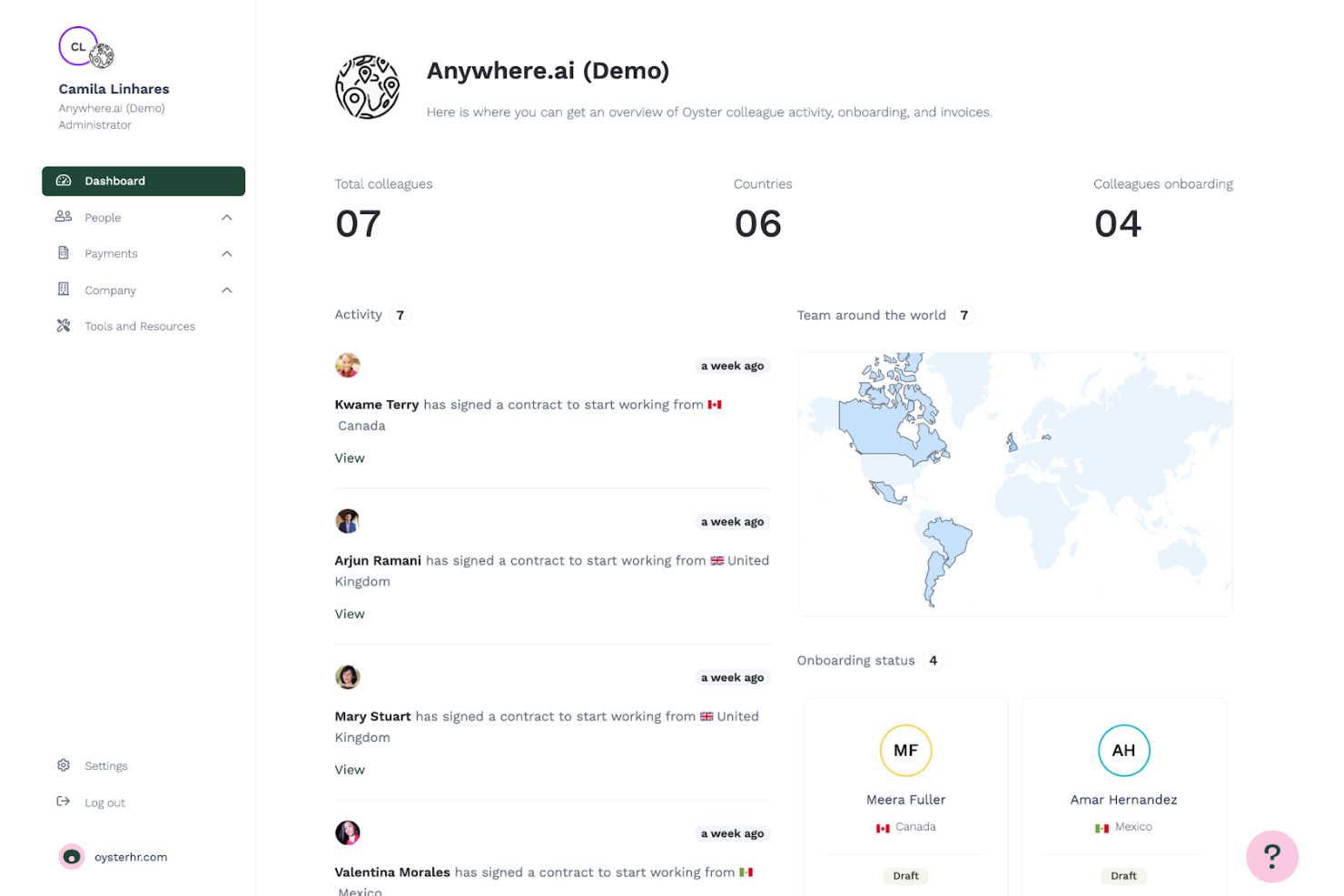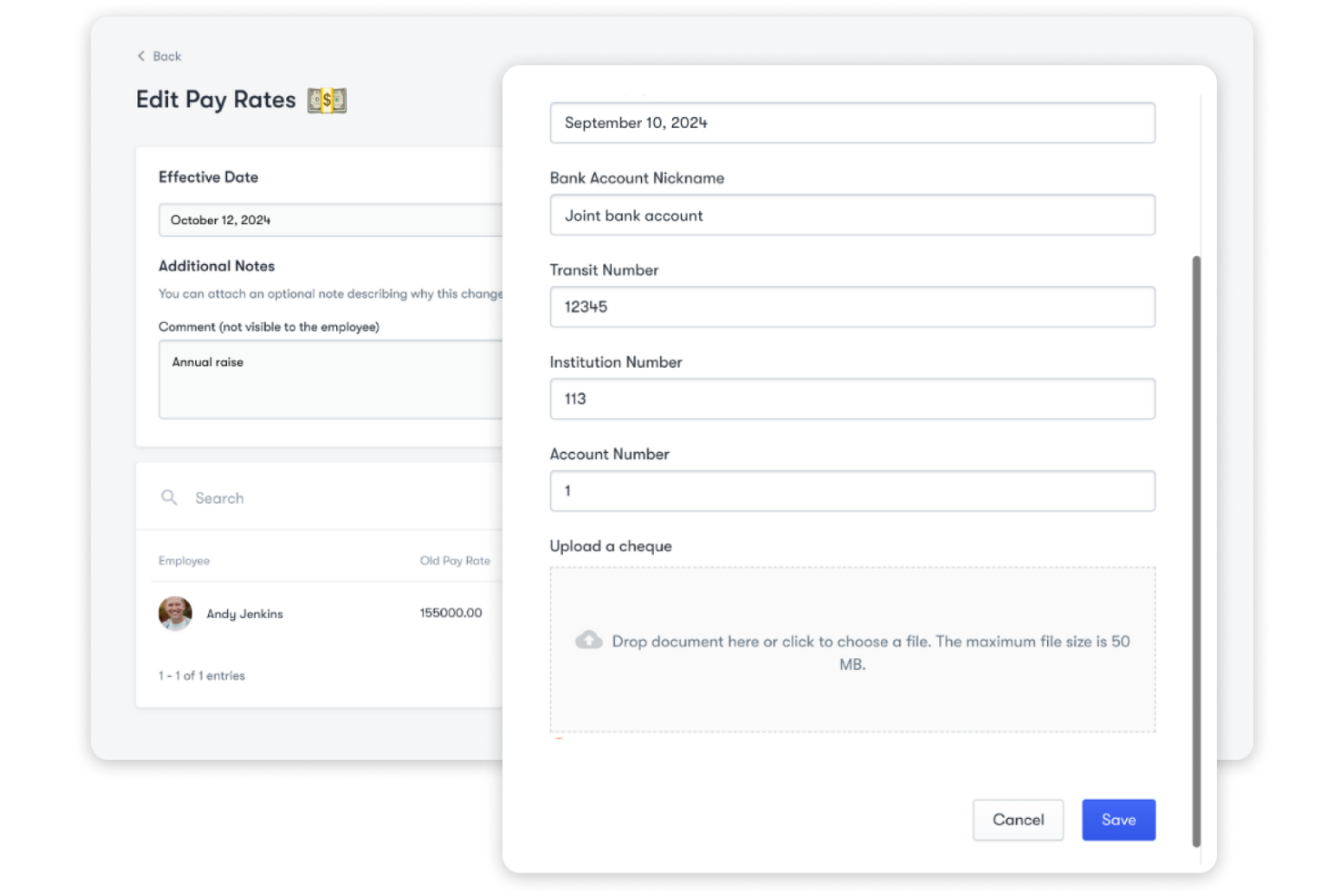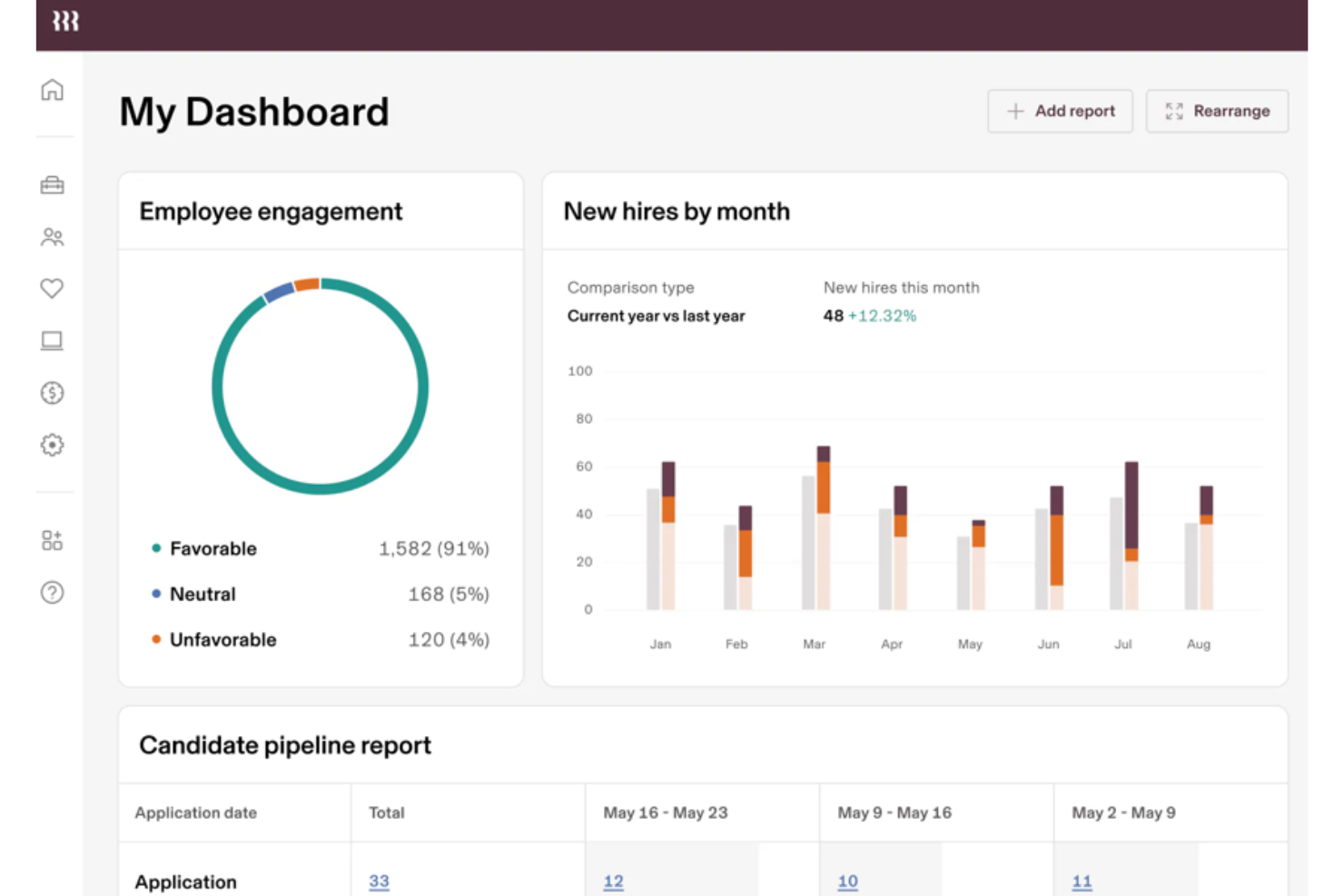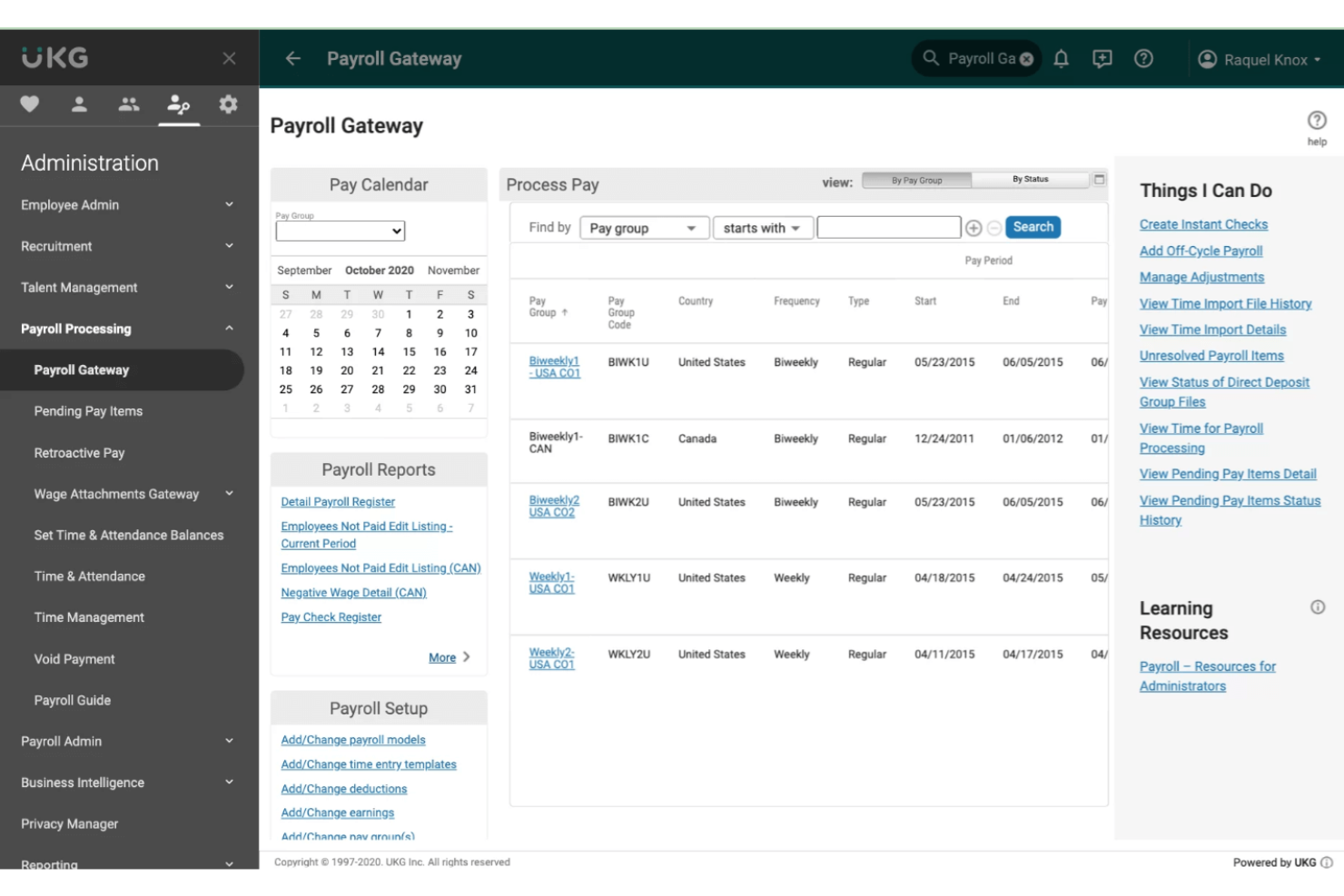Best Workday Alternatives Shortlist
Here's my pick of the 10 best software from the 22 tools reviewed.
Workday is a powerful enterprise-level HR solution known for its robust suite of tools spanning human capital management (HCM), payroll, and financial management. It’s a favorite among large organizations seeking deep functionality and advanced analytics.
However, its steep learning curve, complex implementation process, and premium price tag often make it a less-than-ideal fit for smaller businesses or teams seeking more flexibility and affordability.
If you’re looking for a more streamlined, cost-effective, or user-friendly solution, here are the best Workday alternatives to consider, each offering unique strengths to suit a variety of organizational needs.
What is Workday?
Workday is a cloud-based software platform designed for human capital management (HCM), financial management, and enterprise resource planning (ERP). It is used by organizations of various sizes to manage employee data, payroll, benefits, and financial operations. Common users include HR professionals, finance teams, and business leaders who need a unified system to handle workforce planning, talent management, and financial analytics. Users can earn Workday certifications and specialize in the use of Workday solutions specifically.
Why Trust Our Software Reviews
We’ve been testing and reviewing HR software since 2019. As HR experts ourselves, we know how critical and difficult it is to make the right decision when selecting software.
We invest in deep research to help our audience make better software purchasing decisions. We’ve tested more than 2,000 tools for different HR management use cases and written over 1,000 comprehensive software reviews. Learn how we stay transparent & our software review methodology.
Best Workday Alternatives Summary
This comparison chart summarizes pricing details for my top Workday alternatives to help you find the best software for your budget and business needs.
| Tool | Best For | Trial Info | Price | ||
|---|---|---|---|---|---|
| 1 | Best for global payroll management | Free trial + demo available | From $29/month | Website | |
| 2 | Best for complex business compensation planning | Free demo available | Contact for pricing | Website | |
| 3 | Best for core HR with employee engagement | Free demo available | Pricing upon request | Website | |
| 4 | Best for AI-driven talent management | Free demo available | From $13/user/month, with a minimum of 1000 employees | Website | |
| 5 | Best for diverse payroll and HR services | Free demo available | Pricing upon request | Website | |
| 6 | Best for managing global teams | 30-day free trial | From $29/contractor/month | Website | |
| 7 | Best for Canadian HR integration | Free demo available | From $8/user/month | Website | |
| 8 | Best for integrated HR management | Free demo available | From $8/user/month (billed annually) | Website | |
| 9 | Best for comprehensive workforce management | Free demo available | Pricing upon request | Website | |
| 10 | Best for intuitive HR data management | 7-day free trial | From $6.19/user/month (billed annually) | Website |
-

Kudoboard
Visit WebsiteThis is an aggregated rating for this tool including ratings from Crozdesk users and ratings from other sites.4.8 -

Rippling
Visit WebsiteThis is an aggregated rating for this tool including ratings from Crozdesk users and ratings from other sites.4.8 -

Paylocity
Visit WebsiteThis is an aggregated rating for this tool including ratings from Crozdesk users and ratings from other sites.4.5
Best Workday Alternatives Reviews
Here are my detailed thoughts on each Workday alternative on this list, including what they do well and the best use cases for each.
Deel is a global people platform that simplifies global payroll, compliance, and HR operations for businesses. It is best for global payroll and compliance management due to its comprehensive coverage in 150 countries and robust compliance features.
Why it's a good Workday alternative:
I chose Deel for this list because it excels in managing global payroll and compliance, areas where Workday may not be as specialized. Deel's ability to handle payroll, HR, and compliance for a global workforce makes it a strong contender for businesses with international teams.
Standout features and integrations:
Features include global payroll management, contractor management, equity management, and a comprehensive HRIS. It also provides performance tools, immigration support, and a compliance hub to keep track of global regulatory updates.
Integrations include QuickBooks, Xero, NetSuite, BambooHR, Greenhouse, Lever, Workable, Slack, Microsoft Teams, and Zapier.
Pros and cons
Pros:
- Positive user reviews for ease of use and customer support
- Extensive global coverage with 120+ entities
- Comprehensive global payroll and compliance management
Cons:
- Limited to global payroll and compliance, may not cover all HR needs
- Higher starting price compared to some competitors
New Product Updates from Deel
Introducing Deel AI Workforce
Deel has launched the AI Workforce, a set of specialized agents designed to handle repetitive HR, payroll, and compliance tasks with speed and accuracy. These AI agents don’t just assist—they execute tasks from start to finish. For more information, visit Deel's official site.
Aeqium is a compensation planning software that helps complex organizations manage and optimize their compensation strategies.
Why it's a good Workday alternative:
I picked Aeqium because it focuses specifically on compensation management with a level of customization and clarity that larger platforms often lack. While Workday offers broad HR functionality and some compensation management features, Aeqium gives your team precise control over compensation cycles, letting you manage raises, bonuses, and long-term incentives through flexible workflows and built-in rules. It also offers compensation bands to support pay transparency and equity. For companies looking to improve compensation planning without overhauling their entire HR stack, Aeqium offers targeted tools that go deeper into this core area.
Standout features and integrations:
Features include compensation history tracking, pay equity analysis, cycle progress monitoring, custom compensation reports, real-time data integration, budget management tools, performance-based pay alignment, compliance tracking, salary benchmarking, equity grant management, total rewards statements, and off-cycle pay adjustments.
Integrations include ADP Workforce Now, BambooHR, Gusto, Justworks, Paylocity, Quickbooks, Run Powered by ADP, and DocuSign.
Pros and cons
Pros:
- Flexibility in configuring pay bands
- Customizable templates for offer letters
- Pay equity modeling tools
Cons:
- No built-in ATS or recruiting tie-ins
- Limited HR functions beyond compensation
New Product Updates from Aeqium
Real-Time Error Detection in Compensation Cycles with Aeqium's New Feature
Aeqium's new automated diagnostics feature identifies real-time compensation cycle errors like missing approvals and data mismatches, helping HR resolve issues before finalizing merit and bonus rounds. More details: Aeqium Blog.
Paylocity is a cloud-based HR and payroll software that helps businesses manage their employee lifecycle. It offers a range of tools designed to simplify core HR processes, including payroll management, benefits administration, and employee self-service.
Why it's a good Workday alternative:
Paylocity stands out as a Workday alternative due to its strong focus on mid-market businesses and employee engagement. Unlike Workday, which has a heavier enterprise focus, Paylocity offers features like a community platform that encourages internal communication, collaboration, and feedback among your team. Paylocity also integrates peer-to-peer recognition and automated surveys to gauge employee sentiment.
Standout features and integrations:
Features include onboarding, workforce management, talent management, learning management, compliance, analytics, employee self-service, benefits administration, compensation management, time tracking, expense management, and performance reviews.
Integrations include QuickBooks, Xero, NetSuite, BambooHR, Greenhouse, Lever, Workable, Slack, Microsoft Teams, and Zapier.
Pros and cons
Pros:
- Global payroll and on-demand payments
- Benefits and tax services
- Integrated talent and performance management
Cons:
- Setup can be time consuming
- Lacks support for independent contractor management
New Product Updates from Paylocity
Paylocity AI Assistant Update
Paylocity introduces an AI Assistant that transitions from questions to actions swiftly, enhancing user efficiency. For more information, visit Paylocity's official site.
Oracle HCM is a comprehensive cloud-based human capital management solution that leverages AI to enhance HR and talent management processes. It is best for organizations looking to integrate AI-driven insights into their HR operations to improve employee experiences and workforce performance.
Why it's a good Workday alternative:
I chose Oracle HCM for this list because it offers a robust AI-embedded infrastructure that can transform HR processes. Its comprehensive suite of tools and single data model makes it a strong contender against Workday, especially for organizations seeking advanced analytics and AI capabilities to boost employee engagement.
Standout features and integrations:
Features include AI-driven talent management, comprehensive workforce management, and global payroll solutions.
Integrations include Oracle ERP, Oracle SCM, Oracle CX, Oracle Analytics Cloud, Microsoft Office 365, LinkedIn, Slack, Zoom, SAP SuccessFactors, and Workday.
Pros and cons
Pros:
- Extensive integration options
- Strong global payroll capabilities
- Comprehensive AI-driven HR solutions
Cons:
- Complex pricing structure
- High minimum seat requirement
ADP offers comprehensive payroll and HR services suitable for businesses of all sizes. It is best known for its extensive range of services that cater to various business needs, from payroll processing to HR management.
Why it's a good Workday alternative:
I chose ADP for its extensive service offerings that cover payroll, HR, compliance, and benefits management. ADP stands out as a good Workday alternative due to its scalability and ability to serve businesses of all sizes, from small startups to large enterprises.
Standout features and integrations:
Features include payroll processing, time and attendance tracking, talent management, and benefits administration. It also offers advanced capabilities like workforce management and AI-driven insights.
Integrations include QuickBooks, Xero, Microsoft Dynamics, Oracle, SAP, Workday, Salesforce, BambooHR, Slack, and G Suite.
Pros and cons
Pros:
- Strong compliance support
- Scalable for businesses of all sizes
- Comprehensive service offerings
Cons:
- Complex implementation process
- Mobile app limitations
Oyster is a global employment platform designed to help companies hire, pay, and manage full-time employees and contractors across 180+ countries. It is best for hiring and managing global teams with compliance due to its comprehensive tools and resources that ensure adherence to local laws and regulations.
Why it's a good Workday alternative:
I chose Oyster for this list because it excels in providing a robust solution for global employment, which is a critical need for many businesses today. Its extensive country coverage and compliance tools make it a standout alternative to Workday, especially for companies looking to expand their global footprint.
Standout features and integrations:
Features include global payroll, employer-of-record services, and contractor management. It also provides tools for calculating employment costs, offering competitive salaries, and managing benefits. Additionally, Oyster supports visa sponsorship and offers misclassification insurance for contractors.
Integrations include BambooHR, Greenhouse, Lever, Workday, SAP SuccessFactors, ADP, QuickBooks, Xero, Gusto, and Rippling.
Pros and cons
Pros:
- Transparent, all-inclusive pricing
- Fast onboarding in 130+ countries
- Comprehensive global compliance tools
Cons:
- Additional fee for currency conversions
- Higher starting price for full-time employees
Collage HR is a comprehensive HR management platform designed specifically for Canadian businesses. It integrates HR, payroll, and benefits management into one easy-to-use system.
Why it's a good Workday alternative:
I chose Collage HR for this list because it offers a tailored solution for Canadian businesses, which is a unique advantage. Its integration of HR, payroll, and benefits management makes it a strong contender for companies looking for a localized, all-in-one platform.
Standout features and integrations:
Features include time off management, recruiting, onboarding, performance management, and HR analytics. It also offers payroll and benefits administration.
Integrations include ADP, Ceridian PowerPay & PowerPay Plus, Desjardins, Nethris, Payworks, Wagepoint, BBD (Benefits by Design), Blue Cross, Canada Life, and Chubb.
Pros and cons
Pros:
- Reliable customer support
- Scalable for growing businesses
- Comprehensive HR, payroll, and benefits management
Cons:
- The performance management module could be more robust
- Limited native payroll features
Rippling HCM is a comprehensive platform that integrates HR, IT, and finance management. It is best for businesses looking to manage all workforce operations in one place, from onboarding to payroll and IT management.
Why it's a good Workday alternative:
I chose Rippling HCM for its unique ability to unify HR, IT, and finance operations under one platform. This integration makes it a strong alternative to Workday, especially for businesses that need to manage multiple aspects of their operations seamlessly. Rippling's modular approach allows for customization, making it adaptable to various business needs.
Standout features and integrations:
Features include automated payroll processing, benefits administration, time tracking, and device management. Its no-code automation builder allows businesses to create complex workflows without needing technical expertise.
Integrations include Google Workspace, Slack, Zoom, Microsoft 365, Jira, AWS, GitHub, Brex, Carta, and PayPal.
Pros and cons
Pros:
- No-code automation builder
- Customizable modular plans
- Comprehensive integration of HR, IT, and finance
Cons:
- Higher cost for small businesses
- Limited international payroll support
UKG offers HR, payroll, and workforce management solutions designed to help organizations manage their people effectively. It is best for comprehensive HR and workforce management solutions due to its extensive range of features that cater to various HR needs.
Why it's a good Workday alternative:
I chose UKG because it provides a robust suite of HR, payroll, and workforce management tools that can rival Workday's offerings. Its focus on both people systems and systems of work makes it a strong contender for organizations looking for a comprehensive solution.
Standout features and integrations:
Features include AI-powered workforce management tools that streamline time and attendance, optimize scheduling, and enhance overall workforce productivity. Additionally, their solutions are designed to inspire and support employees throughout their journey.
Integrations include ADP, SAP, Oracle, Microsoft Dynamics, Salesforce, Workday, Kronos, Ceridian, Ultimate Software, and Infor.
Pros and cons
Pros:
- Strong focus on customer support and experience
- AI-powered tools for enhanced productivity
- Comprehensive HR and workforce management features
Cons:
- Limited customization options compared to some competitors
- Pricing information not readily available
BambooHR is a comprehensive HR software that simplifies HR processes from hire to retirement. It is best for intuitive HR with comprehensive data management due to its easy-to-use interface and robust reporting capabilities.
Why it's a good Workday alternative:
I chose BambooHR for this list because it offers a user-friendly platform that integrates with essential HR functions like payroll, time tracking, and benefits management, covering the entire employee lifecycle. It is scalable and customizable with robust reporting and data analytics that provide valuable workforce insights, making it an excellent alternative to Workday.
Standout features and integrations:
Features include employee database management, payroll, time tracking, benefits administration, hiring, and onboarding. It also includes performance management tools and employee experience surveys to enhance company culture.
Integrations include Slack, QuickBooks, Xero, NetSuite, Okta, Google Workspace, Microsoft 365, Indeed, Glassdoor, and ZipRecruiter.
Pros and cons
Pros:
- Strong data security measures
- Comprehensive reporting and analytics
- Efficient employee data management
Cons:
- Additional cost for payroll and benefits administration
- Limited customization options
Other Workday Alternatives
Below is a list of additional Workday alternatives that we shortlisted, but did not make it to the top list. It’s definitely worth checking them out.
- Rise
For employee-focused HR software
- RUN Powered by ADP®
For small businesses
- TimeTrex
For flexible time tracking and payroll
- HiBob
For modern and dynamic workplaces
- Eddy
For small business HR needs
- Gusto
For comprehensive small business payroll
- Employment Hero
For Canadian businesses
- Sage HR
For small to medium-sized businesses
- Workable Recruiting
For streamlined recruitment processes
- Cezanne
For flexible HR solutions
- Arcoro
For construction and field services
- SAP SuccessFactors
For global HR management
Related HR Software Reviews
If you still haven't found what you're looking for here, check out these other related tools that we've tested and evaluated:
- HR Software
- Payroll Software
- Recruiting Software
- Employer of Record Services
- Applicant Tracking Systems
- Workforce Management Software
Selection Criteria for Workday Alternatives
My approach to choosing alternatives for this list is grounded in my experience as an HR technology analyst and thorough research to ensure my recommendations are based on actual utility and performance.
To give you added confidence in my list, here’s a summary of the evaluation criteria I used to make my final selections for the best Workday alternatives:
Core Workday Alternatives Functionality (25% of total score): To be considered for inclusion in this list, each solution had to fulfill these common use cases first:
- Efficient payroll management
- Comprehensive benefits administration
- Robust human resources management
- Detailed talent acquisition tools
- Employee performance monitoring
Additional Standout Features (25% of total score): To help me find the best software out of numerous available options, I also kept a keen eye out for unique features, including the following:
- Drag-and-drop scheduling interfaces
- Advanced filtering and tagging for asset management
- Configurable dashboards for real-time data analytics
- Integration capabilities with other enterprise software
- Mobile accessibility for on-the-go management
Usability (10% of total score): To evaluate the usability of each system, I considered the following:
- Intuitive user interface design
- Minimal learning curve for new users
- Responsive design for various device types
- Clear and logical navigation paths
- High performance with minimal lag
Onboarding (10% of total score): To get a sense of each software provider's customer onboarding process, I considered the following factors:
- Interactive tutorials and product tours
- Accessible training materials and videos
- Simple setup and deployment processes
- Online webinars and real-time assistance
- Community forums for peer support
Customer Support (10% of total score): To evaluate the level of customer support each vendor offered, I considered the following:
- 24/7 live chat support
- Comprehensive FAQ and help documentation
- Quick response times for support tickets
- Dedicated account manager availability
- Proactive monitoring and issue resolution
Value for Price (10% of total score): To gauge the value of each software, I considered the following factors:
- Transparent pricing structures
- Cost-effectiveness compared to features offered
- Flexible pricing plans for different business sizes
- Free trials or demos available
- Discounts for annual subscriptions or bulk licenses
Customer Reviews (10% of total score): Evaluating customer reviews is the final element of my selection process, which helps me understand how well a product performs in the hands of real users. Here are the factors I considered:
- Consistency of positive feedback across various platforms
- Specific praises or criticisms regarding features and usability
- Frequency of updates and improvements based on user feedback
- The overall satisfaction score compared to industry averages
- Real-world examples of problem resolution and user support
Why Look for a Workday Alternative
You might be looking for an alternative to Workday for various reasons, including:
- Cost: Workday's pricing may be too high for your budget.
- Complexity: The system might be too complicated for your needs.
- Customization: You require more customization options than Workday offers.
- Integration: You require integrations with other software that Workday does not support.
- Support: The level of customer service and support provided by Workday is not satisfactory.
Alternatives to Workday can provide more affordable pricing, simpler interfaces, greater customization, better integration capabilities, and more responsive support to address some of the limitations you might face with Workday.
Features to Look for in a Workday Alternative
When selecting Workday alternatives, ensure the software can replicate or improve upon these key features:
- Personal Information Management: Update home addresses, phone numbers, and emergency contacts.
- Benefits Administration: Manage annual open enrollment elections and update dependents and beneficiaries.
- Payslips and Tax Documents: View past and current payslips, withholdings, and tax documents. Update direct deposit information.
- Timesheets: Enter time in a standard location for non-exempt and student employees.
- Expense Management: Request reimbursements and experience faster, more transparent transactions.
- Interactive Org Charts: See who’s who and who’s where within the organization.
- Time Off Management: Easily request vacation and personal days.
- Performance Reviews: Access performance evaluations and work with supervisors to set goals.
- Recruiting: Manage all facets of the hiring workflow from sourcing candidates to assessing applications and holding interviews.
- Analytics and Reporting: Utilize a variety of tools for tracking employee performance statistics and assisting with well-informed company decisions.
What Next?
To remain up to date on all the latest in people management, subscribe to our newsletter for leaders and managers. You'll receive insights and offerings tailored to leaders and HR professionals straight to your inbox.




